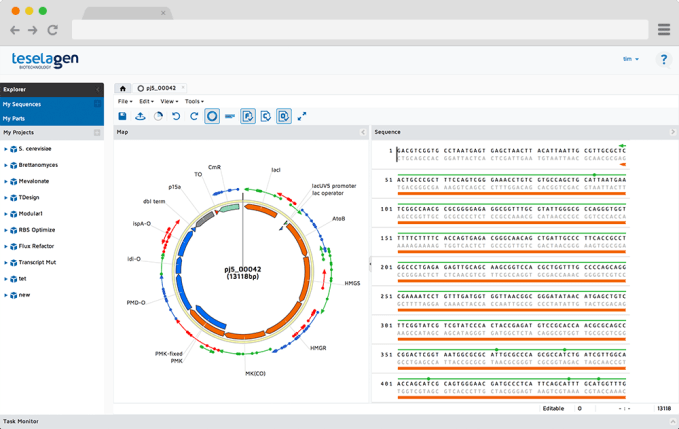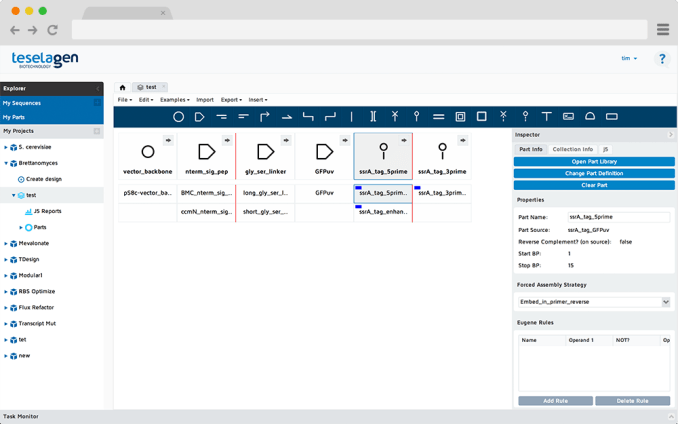As the costs of DNA sequencing and synthesis drop precipitously, a host of computer science-meets-biotech startups are cropping up in Silicon Valley.
TeselaGen, which makes middleware for biotech labs that want to quickly design and iterate on new DNA constructs, is building tools that will help researchers set up and manage wetware experiments and interpret data from lab equipment. They and other startups like Genome Compiler, Transcriptic and SV Angel-backed Benchling are trying to make biotech software more elegant and speed up the development process.
“Our vision is about closing the design-build-test-and-evolve loop,” said CEO Mike Fero, who was a researcher at Stanford focusing on protein localization and who was previously a vice president at a computational genomics company called Neomorphics that was sold to Affymetrix in 2000. “We want to shorten the time frame it takes to get your DNA built and run more experiments.”
Unlike in the world of pure software, you can’t “compile” and “run” genetic code instantaneously (if you want to use the metaphor that cells are like miniature biological computers operating off of DNA). There is lag time as researchers have to splice together different DNA parts and then insert them into host cells in a lab, where they can test them to see if they properly produce certain enzymes.
At the same time, a biologist might want to test 10,000 different variants of a design with minor alterations in each. Right now, the cost of synthesizing each one of those constructs would be too expensive. Fero is hoping that some of the products TeselaGen is building could make the cost of testing thousands of different combinations an order of magnitude cheaper.

So TeselaGen has built visual tools that help researchers view and edit sequences (see above), which is somewhat similar to what both Benchling and Genome Compiler do. But they’re also leveraging j5, which is a new software-based tool that automates DNA assembly and design. And they’ve built a design canvas that supports Synthetic Biology Open Language, an open set of standards that helps synthetic biologists and genetic engineers share DNA designs.

Like other companies in the field, TeselaGen gives its product away for free to academic researchers and then charges corporate clients annual subscription fees.
The company is currently backed by about $1 million in Small Business Innovation Research grants from the National Science Foundation.
